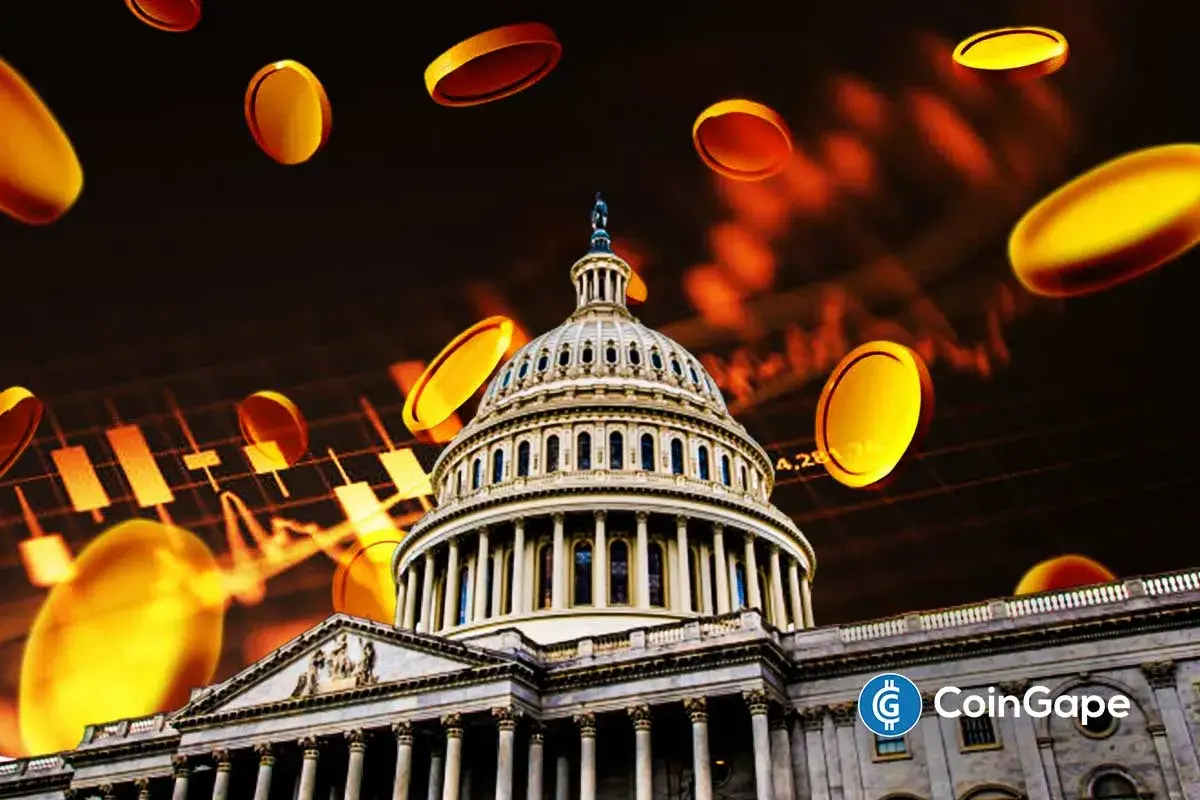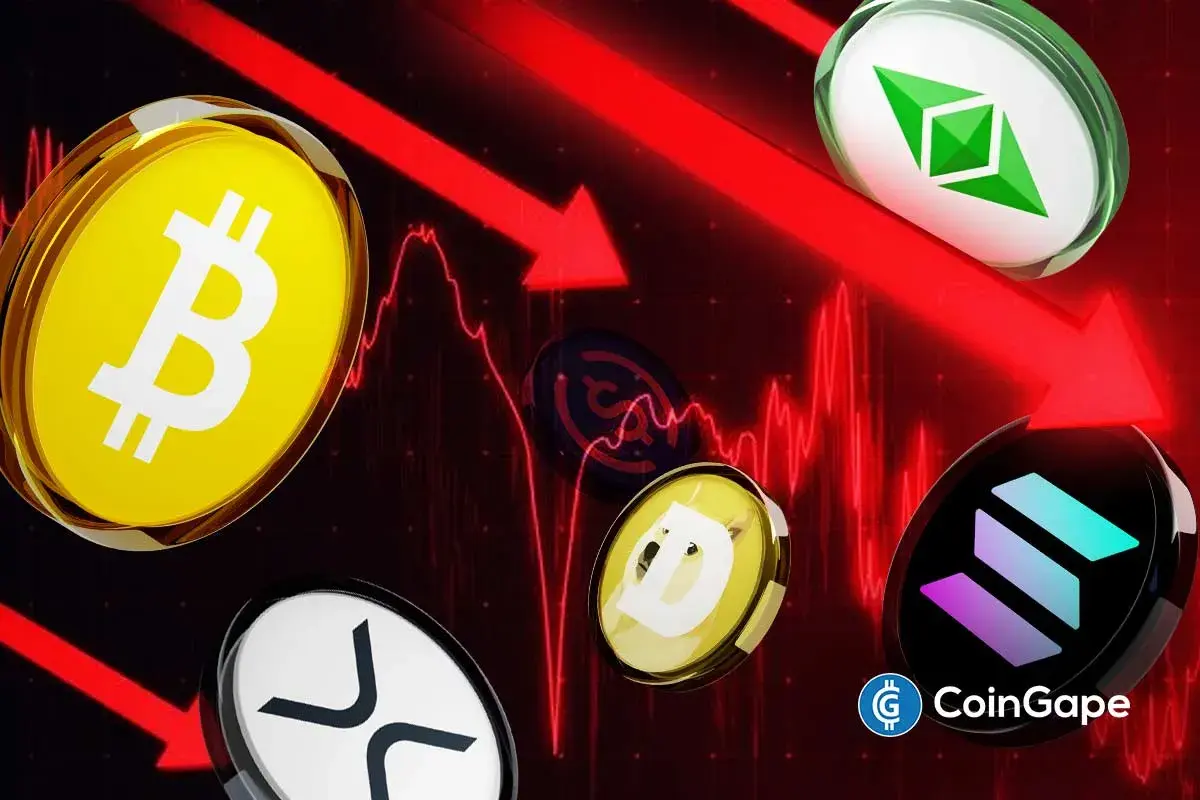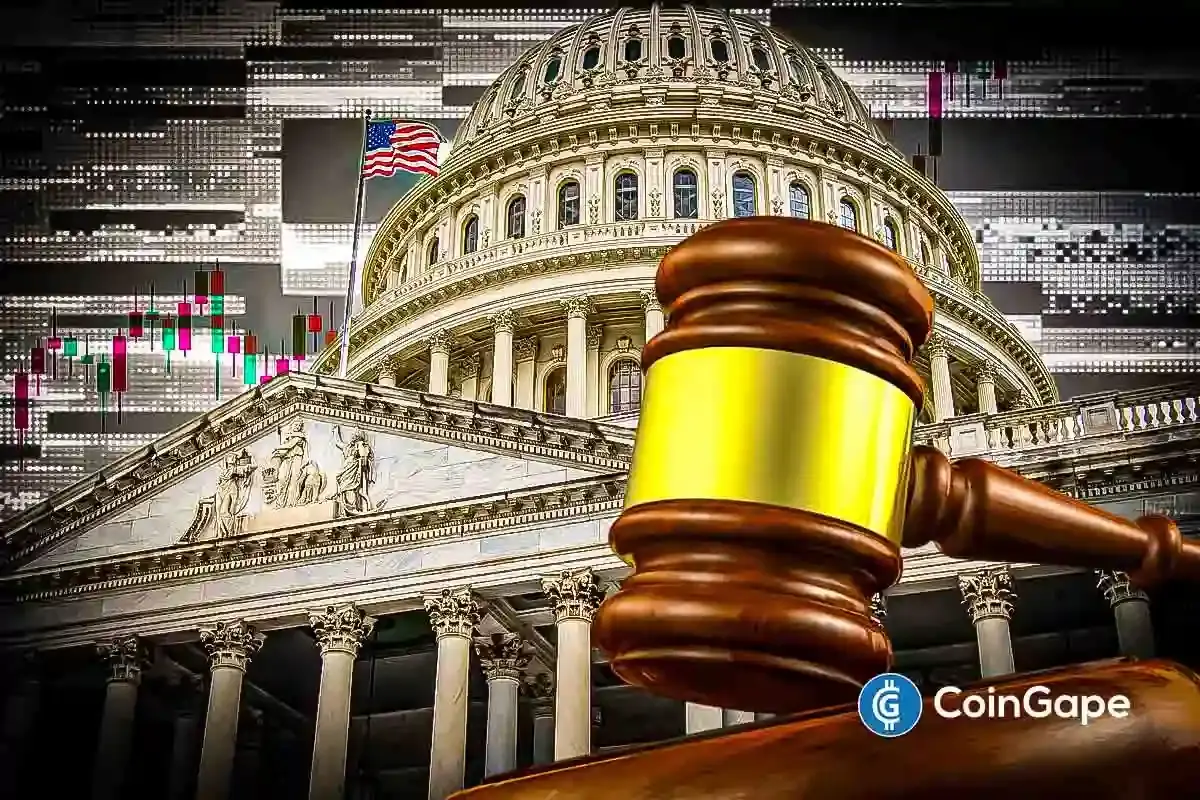Does the U.S. Government Want a Recession to Manage Its Debt?

Highlights
- The U.S. government faces a $9.2T debt refinancing challenge in 2025, with rising interest rates adding additional financial strain.
- The recession could lower borrowing costs by triggering interest rate cuts and easing debt burdens.
- President Donald Trump supports tariffs and trade policies, but the recession topic is untouched.
As 2025 goes in full swing, the U.S. government is facing mounting pressure due to trillions of dollars worth of debt, bringing the question about resolutions or other significant ways to manage this crisis. This year, $9.2T of U.S. debt will either mature or need refinancing. Considering the seriousness of the matter, some experts believe that the recession in the United States could be a quicker way to lower interest rates and handle this burden.
The U.S. Government Debt Dilemma
The U.S. national debt comes to a total of $36 trillion, and servicing that deficit is costly. On a serious note, the average interest rate on the Treasury debt has surged to 3.2%, a 15-year high, which is concerning. In addition, the Federal Reserve’s rates have been rising.
With that, the average interest on this deficit could increase by about one percentage point, extending the challenges. More importantly, between January and June this year, a whopping 70% of the maturing debt must be refinanced.
In this scenario, experts like The Kobeissi Letter believe that cutting the interest rate could offer a significant reprieve for the government’s debt servicing, reducing the financial burden on taxpayers.

Could a U.S Recession Help Lower Rates?
Recession is a devastating event, but due to some point, this is the solution for the U.S. government’s $9.2T debt problem by lowering the borrowing costs. Historical records reveal that this slump triggered a reduction in the Fed Funds Rate. When the economy contracts, the Fed typically stimulates growth by lowering interest rates, making borrowing cheaper.
The Kobeissi Letter considers economic decline as the perfect solution. Their analysis of the yield on the 10-year Treasury notes reveals that it has dropped by 60 basis points in the last two months. The rising expectation of a potential economic decline is a primary contributor.

This, combined with increased uncertainty and rate cut discussion, signals a more dovish policy stand by the Fed. The U.S. government is working on this, and President Donald Trump has voiced his support for lower oil prices and interest rates to combat inflation.
However, experts argue that economic decline is expected to be the most efficient way to achieve both, claiming that reduced demand would naturally drive down prices, including oil.

U.S. Government Take: Will a Recession Be the Solution?
Many industry leaders, even President Donald Trump, believe the United States can avoid economic decline through aggressive trade policies and tariffs. Earlier, Trump implemented a tariff on Mexico and Canada, but reports suggest that these have begun to slow economic growth.
According to experts, an economic slowdown and reciprocity tariff on foreign goods could exacerbate the situation. However, Commerce Secretary Howard Lutnick insists that there won’t be a U.S. recession; more importantly, he claims that tariffs would boost the U.S. economy.
Still, there are signs that the economic fallout from these policies is already being felt. The latest GDP forecast indicates a higher likelihood of an economic decline, with Goldman Sachs raising the probability to 20%.
With inflation on the rise, borrowing costs climbing, and the prospect of a significant debt refinancing on the horizon, a U.S. recession could serve as an unfortunate but effective mechanism for lowering interest rates and easing the debt burden. However, the associates’ take on this situation is unclear.
The Bottom Line
U.S. recession is not the most straightforward approach, as it would bring significant hardships to the citizens. However, experts claim this is a lesser evil than living with mounting debts on the U.S. government. Another temporary solution is that if the economy slows down, the Fed could bring rate gates to reduce the deficit serving cost.
However, there are still questions and concerns about whether the administration will continue to embrace policies that could push the economy into a downturn.
Frequently Asked Questions (FAQs)
1. Why is the topic of recession in discussion?
2. How does the Federal Reserve's interest rate impact the U.S debt?
3. Can a U.S. recession help reduce the debt burden?
- Crypto Traders Reduce Fed Rate Cut Expectations Even as Expert Calls Fed Chair Nominee Kevin Warsh ‘Dovish’
- Crypto, Banks Clash Over Fed’s Proposed ‘Skinny’ Accounts Ahead of White House Crypto Meeting
- XRP News: Ripple Expands Custody Services to Ethereum and Solana Staking
- Bernstein Downplays Bitcoin Bear Market Jitters, Predicts Rally To $150k This Year
- Breaking: Tom Lee’s BitMine Adds 40,613 ETH, Now Owns 3.58% Of Ethereum Supply
- Cardano Price Prediction as Bitcoin Stuggles Around $70k
- Bitcoin Price at Risk of Falling to $60k as Goldman Sachs Issues Major Warning on US Stocks
- Pi Network Price Outlook Ahead of This Week’s 82M Token Unlock: What’s Next for Pi?
- Bitcoin and XRP Price Prediction as China Calls on Banks to Sell US Treasuries
- Ethereum Price Prediction Ahead of Feb 10 White House Stablecoin Meeting
- Cardano Price Prediction as Midnight Token Soars 15%















